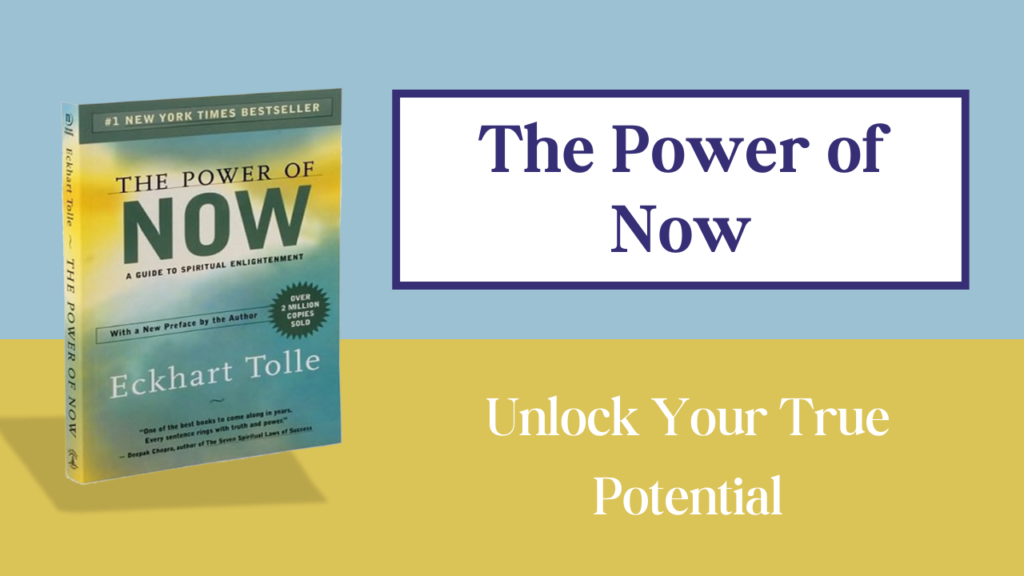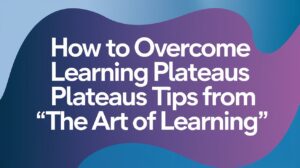In the ever-evolving landscape of self-help literature, Eckhart Tolle’s “The Power of Now” stands out as a transformative guide to living a more present and fulfilling life. Since its publication in 1997, this profound book has captivated readers with its teachings on mindfulness, presence, and inner peace. But what makes “The Power of Now” a pivotal read for anyone seeking personal growth and spiritual awakening? In this comprehensive analysis, we’ll explore the core concepts of Tolle’s work, its impact on readers, and how embracing the principles of presence can unlock your true potential.

Understanding the Core Message of “The Power of Now”
The Concept of Presence
At the heart of “The Power of Now” is the idea of living in the present moment. Tolle argues that much of human suffering stems from our preoccupation with the past and future. He emphasizes that by anchoring ourselves in the present, we can experience a profound sense of peace and clarity.
The book introduces readers to the concept of “presence”—a state of being fully engaged with the current moment. Tolle describes presence as the key to transcending the ego and experiencing a deeper level of consciousness. By focusing on the now, we free ourselves from the constraints of time and the constant chatter of the mind.
The Role of the Mind and Ego
Tolle’s exploration of the mind and ego is central to understanding his philosophy. According to Tolle, the ego is a construct of the mind that thrives on identification with thoughts, emotions, and external achievements. The ego perpetuates a sense of separation and dissatisfaction, leading to a continuous cycle of craving and conflict.
In “The Power of Now,” Tolle explains that by observing our thoughts without judgment, we can begin to disidentify from the ego. This process allows us to access a higher state of consciousness, where we are no longer bound by the limitations of the mind. Tolle’s teachings encourage readers to recognize the ego’s influence and to cultivate a sense of inner stillness.
The Illusion of Time
One of the book’s most profound insights is its critique of our relationship with time. Tolle argues that our obsession with past regrets and future anxieties prevents us from fully experiencing the present. By dwelling on time, we create a mental barrier that keeps us from appreciating the richness of the now.
Tolle’s discussion on time is not just a philosophical argument but a practical guide for achieving inner peace. He suggests that by letting go of the past and future, we can dissolve the mental constructs that perpetuate stress and unhappiness. The book offers practical exercises for shifting our focus away from time and toward the present moment.
Practical Applications of Tolle’s Teachings
Mindfulness Practices
One of the key takeaways from “The Power of Now” is the importance of mindfulness. Tolle provides various techniques for cultivating mindfulness, including conscious breathing, body awareness, and present-moment observation. These practices help individuals anchor themselves in the now and develop a greater sense of self-awareness.
Mindfulness is not just a concept but a practice that can be integrated into daily life. By incorporating mindfulness into routine activities—such as eating, walking, or listening—individuals can enhance their ability to stay present and fully engage with their experiences.
Overcoming Negative Thought Patterns
Tolle’s teachings also address the challenge of overcoming negative thought patterns. The book offers practical advice on how to recognize and disengage from the incessant stream of negative thoughts that often dominate our minds. By observing these thoughts without attachment, we can reduce their power and shift our focus to a more positive and present-oriented mindset.
Enhancing Relationships
“The Power of Now” emphasizes that the principles of presence can significantly impact our relationships. By being fully present with others, we can foster deeper connections and more meaningful interactions. Tolle encourages readers to practice active listening and genuine presence in their relationships, which can lead to greater empathy and understanding.
It's no wonder that The Power of Now has sold over 2 million copies worldwide and has been translated into over 30 foreign languages. Much more than simple principles and platitudes, the book takes readers on an inspiring spiritual journey to find their true and deepest self and reach the ultimate in personal growth and spirituality: the discovery of truth and light.
The Impact of “The Power of Now” on Personal Growth
Transformation and Awakening
Many readers of “The Power of Now” report experiencing profound personal transformation and spiritual awakening. The book’s teachings have inspired individuals to reevaluate their lives, embrace a more mindful approach, and cultivate a sense of inner peace. Tolle’s emphasis on presence and ego dissolution has resonated with people from various backgrounds, leading to transformative shifts in their perspectives and behaviors.
Practical Benefits
The practical benefits of applying Tolle’s teachings are evident in various aspects of life. From reducing stress and anxiety to enhancing overall well-being, the principles outlined in “The Power of Now” offer valuable tools for navigating the complexities of modern life. By embracing presence and mindfulness, individuals can experience greater clarity, satisfaction, and fulfillment.
Criticisms and Limitations
While “The Power of Now” has garnered widespread acclaim, it is not without its criticisms. Some readers find Tolle’s concepts challenging to grasp or implement, especially in the face of deep-seated emotional issues. Additionally, the book’s focus on spirituality and inner consciousness may not resonate with everyone.
It’s important to approach Tolle’s teachings with an open mind and a willingness to explore different perspectives. The book’s principles are best understood and applied through personal experience and reflection.
Embracing the Principles of Presence
Cultivating Daily Mindfulness
To fully benefit from the teachings of “The Power of Now,” it’s essential to cultivate daily mindfulness practices. Start by setting aside time each day for mindfulness exercises, such as meditation or mindful breathing. Gradually incorporate these practices into your daily routine, paying attention to moments of presence throughout the day.
Exploring Personal Growth Resources
In addition to “The Power of Now,” there are numerous resources available for those interested in exploring mindfulness and personal growth. Consider exploring other books, workshops, and practices that complement Tolle’s teachings and offer further insights into mindfulness and spiritual awakening.
Joining a Community
Engaging with a community of like-minded individuals can provide additional support and motivation on your journey toward greater presence. Look for local or online groups focused on mindfulness, meditation, or personal development. Sharing experiences and learning from others can enhance your understanding and application of Tolle’s principles.
Conclusion
Eckhart Tolle’s “The Power of Now” remains a seminal work in the realm of self-help and spirituality. By delving into the concepts of presence, ego dissolution, and the illusion of time, Tolle offers a powerful roadmap for achieving inner peace and personal transformation. Embracing the principles outlined in the book can lead to profound changes in how we experience and engage with life.
Whether you’re seeking to reduce stress, enhance relationships, or achieve a deeper sense of fulfillment, “The Power of Now” provides valuable insights and practical tools for navigating the complexities of modern existence. By anchoring yourself in the present moment and applying Tolle’s teachings, you can unlock your true potential and embark on a journey of self-discovery and growth.






